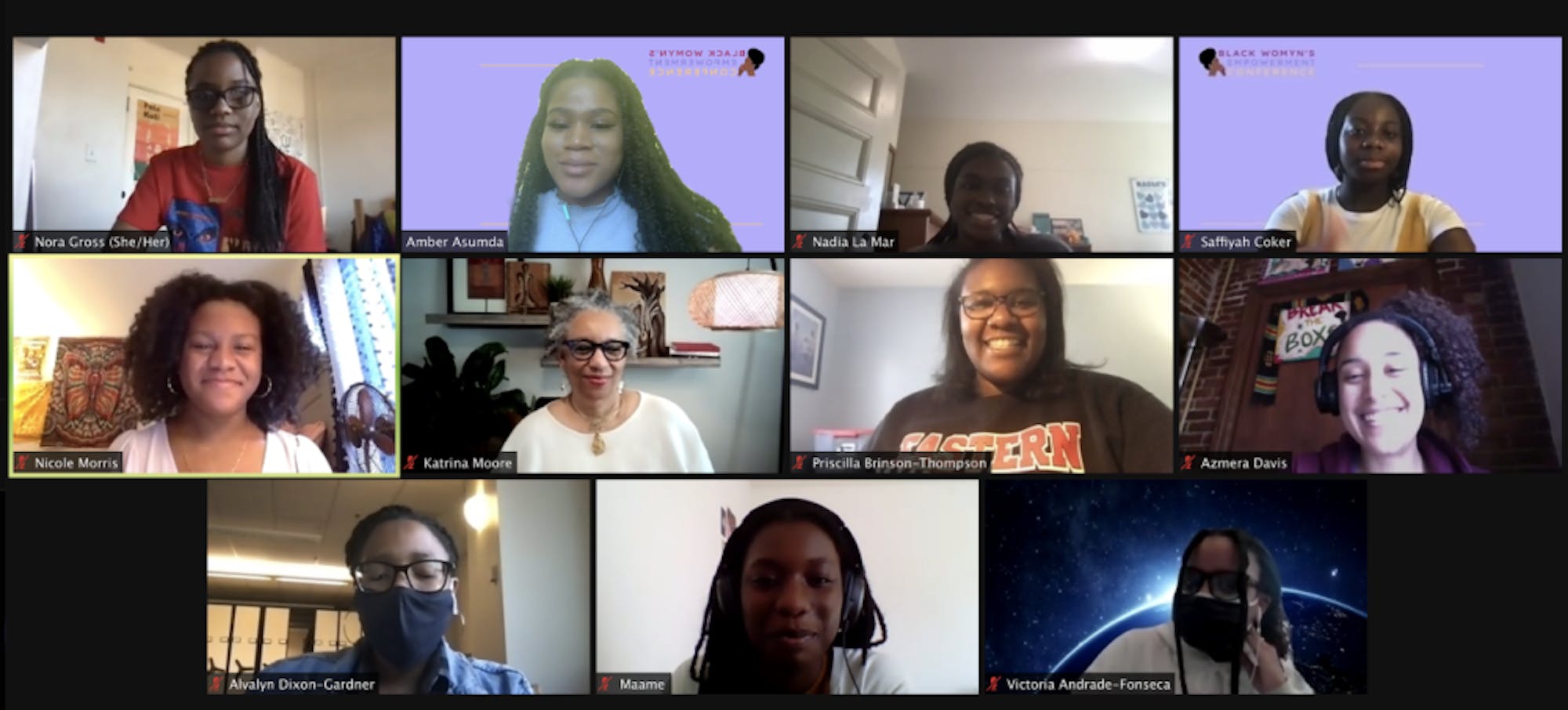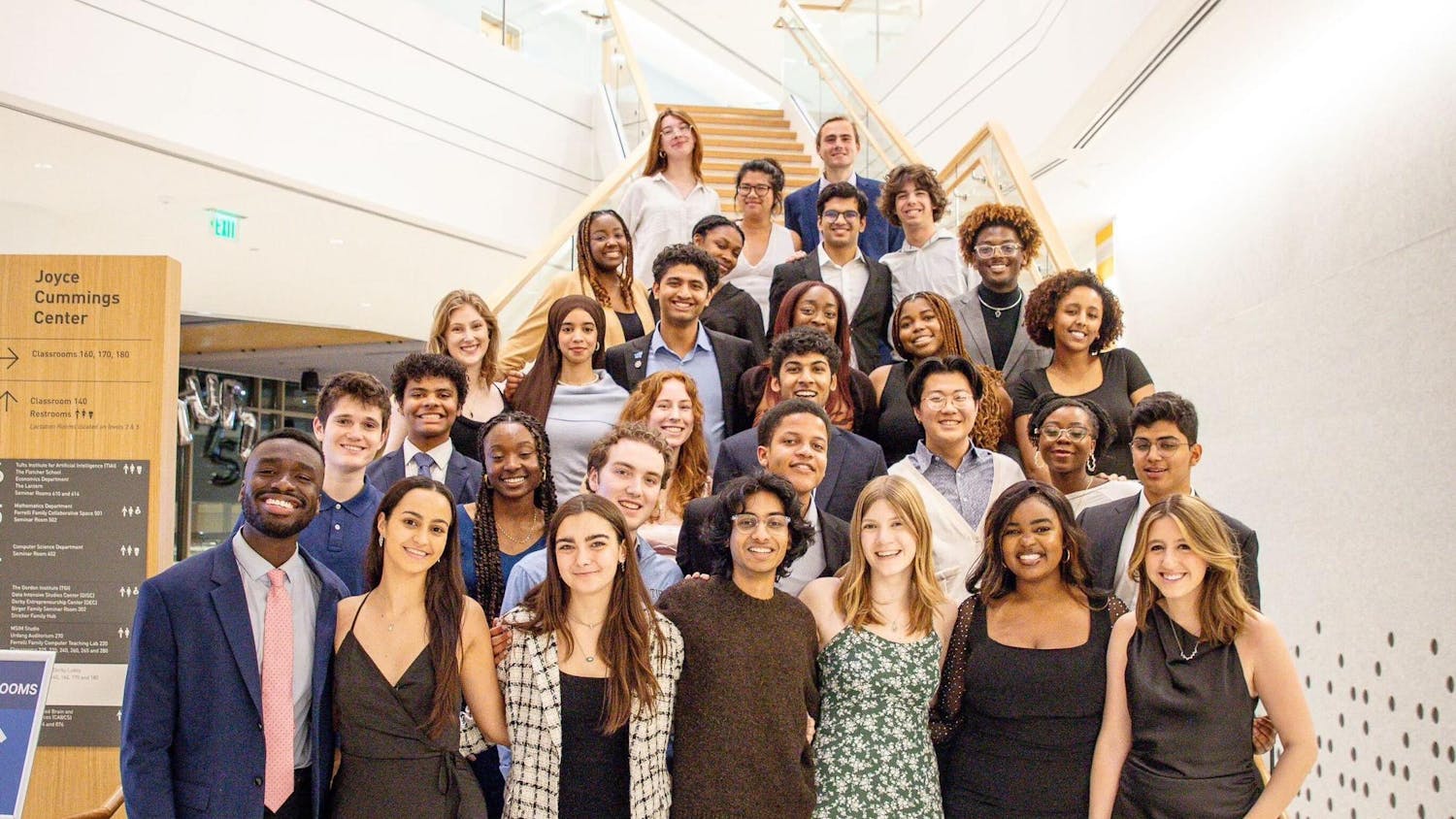The Africana Center hosted its inaugural Black Womyn’s Empowerment Conference on March 12 and 13. The conference, which had nearly 200 registrants, was open to all Black female and femme post-secondary students in the Northeast.
Amber Asumda, who was the conference chair for the event, came up with the idea when thinking of ways to empower Black women for her Tisch Scholar project.
“About a year ago, after the death of Breonna Taylor, around this time last year actually, and the BLM protests last summer, I was thinking of a way of how to empower Black women, throughout the United States," Asumda, a junior, said. "I came up with an idea of a seminar or a conference, geared toward empowering Black women students."
The conference’s theme was “I am because we are,” and consisted of a series of panels, workshops and sessions over two days on topics ranging from networking and career advice to personal development and community building. Rev. Naomi Tutu, the daughter of human rights advocate Archbishop Desmond Tutu, gave the closing keynote address.
“'I am because we are' is kind of the English deviation of the Zulu word 'ubuntu,' which speaks to the ideas of African spirituality and collectivity,” Asumda said. “We wanted to use the theme 'I am because we are' to highlight that, even though throughout the different schools in the Northeast are attending, we're still Black woman students, we have some shared experiences regardless of socioeconomic status, location, background, etc.”
Saffiyah Coker, a communication coordinator for the conference, said that the timing of the event was especially poignant.
“[The timing] was intentional because of Womyn's History Month, and it also so happened that the second day, March 13, was the one year anniversary of Breonna Taylor's death,” Coker, a first year, said. “It was a really sobering and impactful moment because there were multiple moments of silence held during the day to honor her memory.”
While the conference was originally for just students in Massachusetts, the coordinators decided to expand it to all Black female students in the Northeast to reach as many people as possible, Elisabeth Di Domenico, a first-year and a marketing coordinator for the conference, said.
The networking 101 session and panels about Black women in law and public policy, medicine, social enterprise and technology aimed to provide attendees with academic skills and career advice.
“We gave attendees the opportunity to workshop their resumes, network with each other, learn how to market themselves, as well [as] to brand themselves in interviews,” Asumda said.
Waideen Wright, content coordinator for the conference, said that she came up with the idea for one of the panels, called “Rainbow Sisters: LGBTQ+ Black Womyn.”
“I was the one who brought up having the Rainbow Sisters panel to represent queer women,” Wright, a sophomore, said. “That intersectionality of not all Black women are the same, not all of them walk the same walk, is really important to me as a queer Black woman because we're often put in this box of expectations, and I just want people to know that no matter who you are and you know what you're passionate about, you can really achieve everything you want with the great support system and strong dream.”
Asumda said that she learned a lot from the “Lavender Table Talk on Womanism” panel, which included Boston’s Poet Laureate Porsha Olayiwola.
“That panel was amazing,” Asumda said. “It’s like womanism is to feminism as purple [is to] lavender … [T]here's similarities between the two like the nature of being a woman and also emphasis on the uplifting of Black women and other women of color.”
Another one of the panels was called “#SayHerName," which included Dr. Kerri Greenidge, an associate professor of race, colonialism and diaspora at Tufts, Dr. Christina Greer, an associate professor of political science and American studies at Fordham University and Hannah Drake, an author, poet and activist, according to Asumda.
“It was a conversation that needed to happen,” Asumda said. “It's been almost a year since all the racial [issues] and [in]justices in this country were brought to the forefront, so [we heard] from Black woman scholars in that field, who, through their personal experiences, have kind of lived in activism and through their research have discovered that these are more than just statistics about Black women and violence and also police brutality; it is a reality that many people are facing day to day.”
Asumda discussed the importance of giving Black women and Black transgender women a space to connect with one another.
“Particularly, physically a Black women at the intersection of race and gender have kind of just historically faced many different injustices," Asumda said. "So it's good to actually have the opportunity to create a gathering space for women and Black women, trans women, anyone who identifies as a woman … having a place of Black people together, and then on top of that, having a shared experience with women, your sisters and kind of just reflecting on that is I think super important.”
Di Domenico noted that they have been receiving feedback on the conference and hope to continue it in future years.
Wright expanded on how crucial it is that spaces exist for Black women to support themselves and empower each other.
“It's really important to empower Black women because we don't always have that security and that backing where people are rooting for us and supporting us. We kind of have to be our own support system,” Wright said. “Empowering each other is our greatest strength in the sense that we know our struggles the best, and we know what we need to succeed.”
Correction: A previous version of this article incorrectly reported the number of registrants for the Black Womyn's Empowerment Conference. This article has been updated to reflect the correct number of registrants. The Daily regrets this error.






